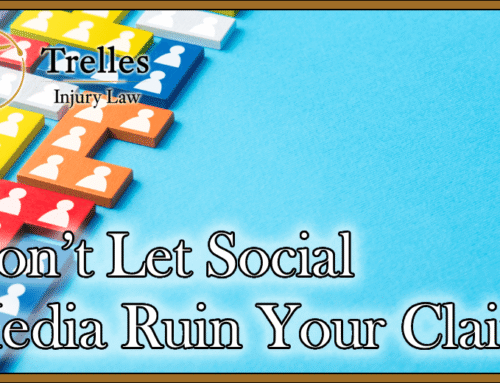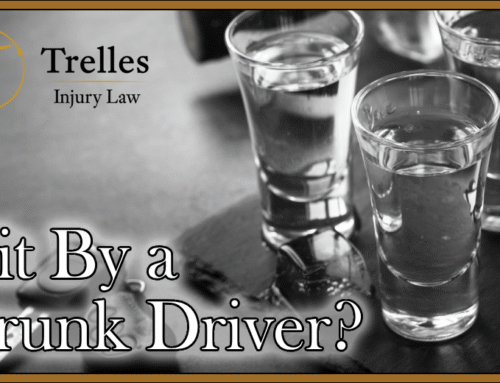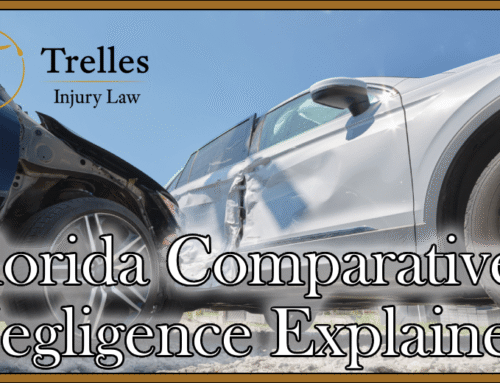Boating is one of the most enjoyable ways to explore the open water, especially in coastal states like Florida where access to the ocean, lakes, and rivers is abundant. But with more people enjoying the water comes a higher risk of boating accidents. According to the U.S. Coast Guard, thousands of recreational boating accidents happen every year, many of which involve collisions between two or more vessels. The consequences can be severe, leading to serious injuries, property damage, or even fatalities.
If you’ve been injured in a boating accident, understanding what causes these collisions is the first step in protecting yourself — both on the water and in the courtroom. Below, we break down the top causes of boating collisions and what legal steps you can take if you or a loved one is hurt due to someone else’s negligence.
Why Boating Collisions Are More Common Than You Think
Boating may seem leisurely, but it’s a serious responsibility. Unlike cars, boats don’t have lanes or traffic lights, and most waterways lack clear directional signage. Many people operate boats with little training or experience, under the impression that it’s safer or less regulated than driving. That assumption leads to dangerous situations.
According to the Florida Fish and Wildlife Conservation Commission (FWC), operator error is responsible for the vast majority of boat accidents. These aren’t just accidents — they’re preventable incidents caused by human behavior. Whether due to distractions, recklessness, or a failure to follow boating rules, these behaviors put others in danger.
Table of Contents
- Why Boating Collisions Are More Common Than You Think
- Operator Inattention: The Leading Cause of Boat Accidents
- Speeding on the Water: When Boaters Ignore Safety Limits
- Alcohol Use and Boating: A Dangerous Mix
- Weather Conditions and Visibility: Hidden Hazards on Open Water
- Equipment Failure and Poor Maintenance
- Inexperienced or Unlicensed Operators
- Crowded Waterways and Reckless Boating Behavior
- What to Do After a Boating Accident
- When to Contact a Boat Accident Lawyer
- How Trelles Injury Law Can Help You
Operator Inattention: The Leading Cause of Boat Accidents
Operator inattention is consistently listed as the number one cause of boat collisions. On busy waters, failing to keep a proper lookout is a recipe for disaster. Distractions can include socializing with passengers, fiddling with GPS devices, checking phones, or simply failing to scan for obstacles ahead.
Unlike roads, open water environments constantly change. Swimmers, other boats, floating debris, and wildlife can all appear suddenly. If a boat operator isn’t alert at all times, the risk of collision rises dramatically.
In personal injury cases, operator inattention is often a clear sign of negligence. If you were injured because someone failed to keep a proper lookout, you may be entitled to compensation.
Speeding on the Water: When Boaters Ignore Safety Limits
Just like on highways, speed kills on water. Speeding reduces a boater’s ability to react to sudden hazards, navigate around other vessels, or adjust to changing water conditions. Unlike cars, boats don’t have brakes, and the stopping distance at high speeds can be dangerously long.
Some operators speed because they’re unaware of local rules. Others intentionally disregard safety to show off or reach a destination faster. Either way, operating a vessel at excessive speeds is not just reckless — it can be grounds for legal liability if it leads to an accident.

Alcohol Use and Boating: A Dangerous Mix
Alcohol is a major factor in both fatal and non-fatal boating accidents. Boating under the influence (BUI) is illegal in all 50 states, and for good reason. Alcohol impairs judgment, coordination, and reaction times — all critical skills when navigating a vessel.
What many don’t realize is that the effects of alcohol are intensified by the marine environment. Sun exposure, wind, and wave motion all increase the impact of alcohol on the body, a phenomenon known as “boater’s fatigue.”
If you’ve been hit by a boater who was under the influence, it’s crucial to document any signs of impairment and speak with a lawyer. BUI-related accidents can result in both civil and criminal penalties.
Weather Conditions and Visibility: Hidden Hazards on Open Water
Sudden storms, fog, or rough seas can create serious hazards for even experienced boaters. Unlike roads that offer signage and fixed lighting, waterways can become disorienting when visibility drops. Heavy rainfall, early morning mist, and foggy conditions can hide important markers, buoys, or even other vessels. This makes it especially dangerous in busy waterways, where traffic can remain heavy regardless of conditions.
Wind is another unpredictable factor that can drastically affect control of a boat. Gusty winds can push vessels off course, especially smaller boats and personal watercraft. These conditions make steering more difficult and increase the chance of side-swiping another vessel or running aground.
While boaters can’t control the weather, they are expected to monitor forecasts, carry proper safety gear, and avoid heading out when bad weather is predicted. Failure to take these precautions — or continuing to operate a boat in unsafe conditions — may be considered negligence if it results in an accident.
Equipment Failure and Poor Maintenance
Mechanical issues can be another major cause of boating collisions. From engine failure to faulty steering or broken lights, poorly maintained boats are a threat to everyone on the water. Some boat owners neglect routine maintenance, while others cut corners on repairs to save money.
In some cases, the issue lies with the boat manufacturer or a rental company that failed to properly inspect and service their fleet. These scenarios open the door to potential product liability or third-party negligence claims.
If equipment failure played a role in your accident, preserving evidence is key. Take photos, save receipts, and get copies of any repair records if possible.
Inexperienced or Unlicensed Operators
Many states, including Florida, have few barriers to boat operation. This means inexperienced or untrained individuals can easily take control of powerful watercraft without knowing the rules of the water.
Inexperience often leads to poor decision-making, such as cutting across another vessel’s path, misjudging distances, or panicking during emergencies. If an unlicensed or undertrained person caused your accident, this fact may strengthen your injury claim.

Crowded Waterways and Reckless Boating Behavior
Peak season often brings a surge of recreational boaters, jet skis, kayaks, and paddleboarders onto the water. With increased traffic comes increased risk. When boaters behave recklessly — wake jumping, weaving through other boats, or ignoring no-wake zones — collisions are nearly inevitable.
Reckless boating is not only dangerous but also illegal. If a crash occurred in a crowded area due to one party’s disregard for the rules, that operator could be held liable for injuries and property damage.
What to Do After a Boating Accident
If you’re involved in a boating accident, your safety comes first. Immediately check yourself and others for injuries. If anyone is seriously hurt, call for emergency medical assistance right away and provide first aid if you’re able. It’s also important to move your vessel out of harm’s way if it’s safe to do so and doesn’t put anyone at further risk.
Once everyone is safe, report the accident to local authorities. In Florida, and most other states, you’re legally required to report a boating accident if there are serious injuries, fatalities, or significant property damage. Make sure to cooperate with officers, but avoid speculating about fault or responsibility on the scene.
Next, start gathering evidence. Take photographs of the boats, damage, injuries, and the surrounding conditions, such as weather, waves, or obstacles. If any other boaters or passengers witnessed the collision, ask for their contact information and brief statements. These details could become critical in a legal case or insurance claim.
When to Contact a Boat Accident Lawyer
Not every boat collision leads to a lawsuit, but when negligence is involved, legal action may be your best path to recovering compensation. Medical bills, lost income, property damage, and pain and suffering are all potential damages that a qualified attorney can help you pursue.
Boating laws vary by state, and proving fault can be complex. An experienced personal injury attorney can investigate the cause of the accident, gather evidence, and work with insurance companies on your behalf.
How Trelles Injury Law Can Help You

- Expertise: Access to experienced attorneys specializing in personal injury cases.
- Negotiation: Skilled negotiators who strive to maximize settlement offers.
- Guidance: Comprehensive support and guidance through the legal and claims process.
- Representation: Legal representation if required, ensuring your rights are protected.
- Resources: Utilization of resources and networks to build a robust case.
Trelles Injury Law helps victims of boat collisions understand their rights and pursue fair compensation. Whether your accident was caused by an inattentive operator, excessive speed, alcohol use, or faulty equipment, our experienced attorneys are here to guide you. We’ll help you uncover the cause of the collision, identify who’s at fault, and navigate the legal process with confidence.
Contact us today for a free consultation. We’ll support you every step of the way after your boating accident—so you can focus on recovery while we focus on results.
Fluent in both English and Spanish, Ms. Trelles has been representing the injured in Palm Beach County for more than 3 decades. She focuses her practice in all areas of personal injury, wrongful death, and premises liability. A native of Tampa, Florida and of Cuban descent, Ms. Trelles earned her Bachelor’s Degree from the University of Florida in 1988 and her Juris Doctorate Degree from the University of Florida College of Law in 1991. She was admitted to the Florida Bar in 1992 and is admitted to practice in the State Courts of Florida, U.S. District Court, and Northern and Middle Districts of Florida. Ms. Trelles has successfully tried numerous personal injury cases and has secured several multi-million dollar verdicts for her clients. Through years of experience, Ms. Trelles has become a powerful advocate for victims’ rights in Palm Beach County and throughout Florida. More about Yvette Trelles, Esq.
Related Post
Free Consultation Form
We have vast experience in every type of accident case.
Give Us the details, and we will tell you how we can help.







